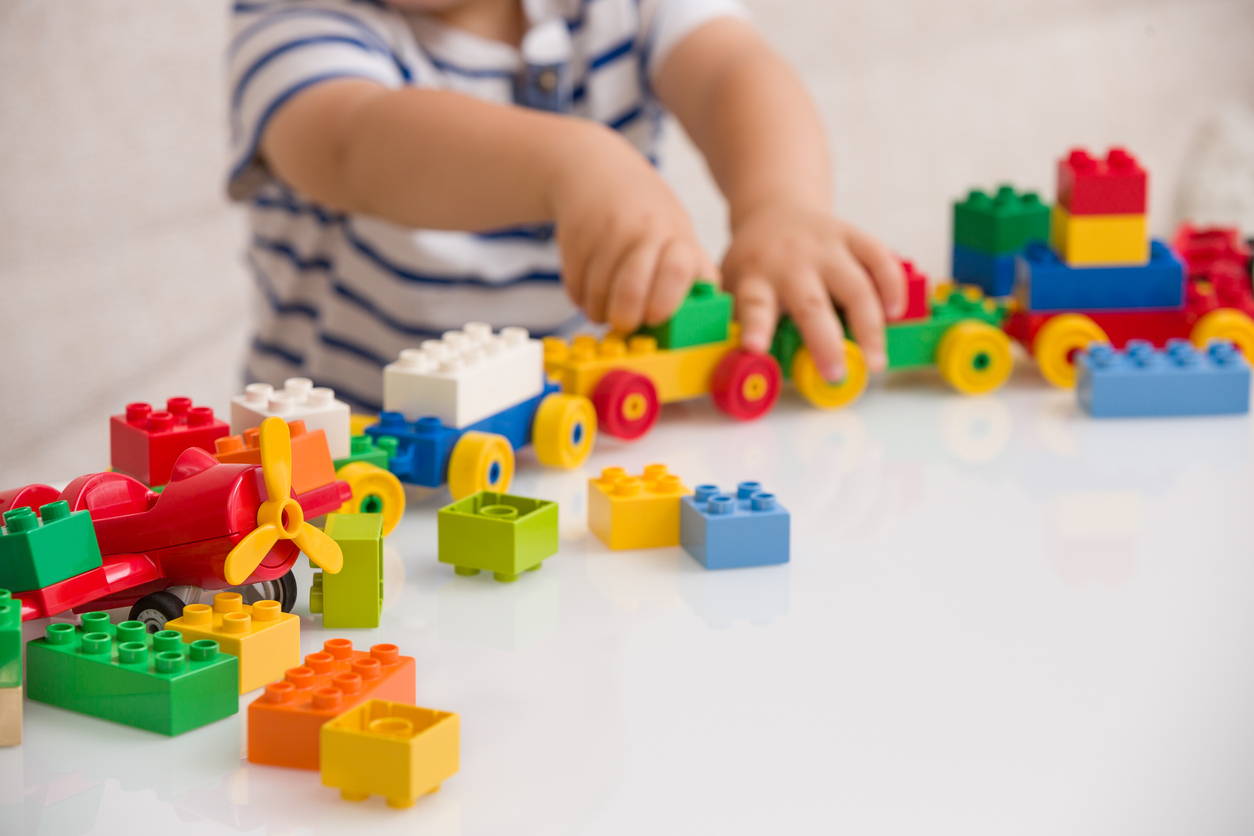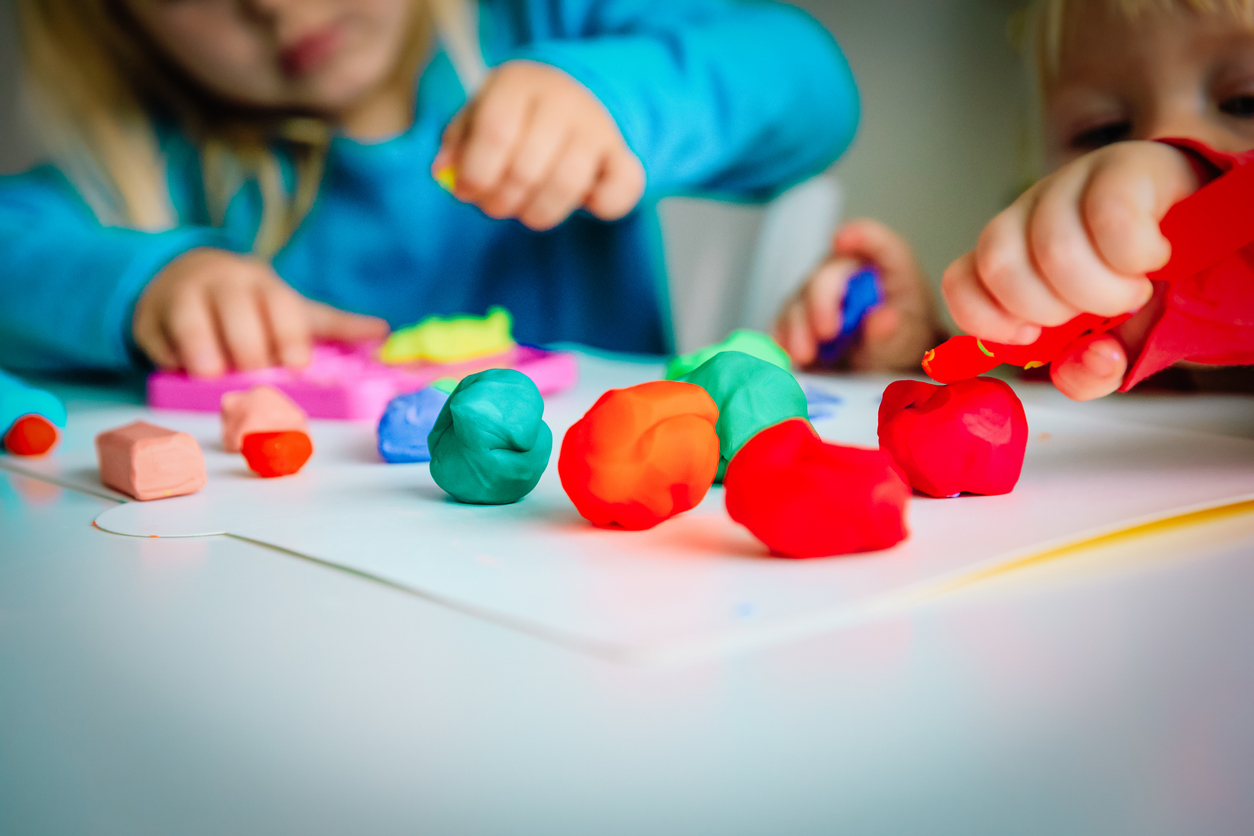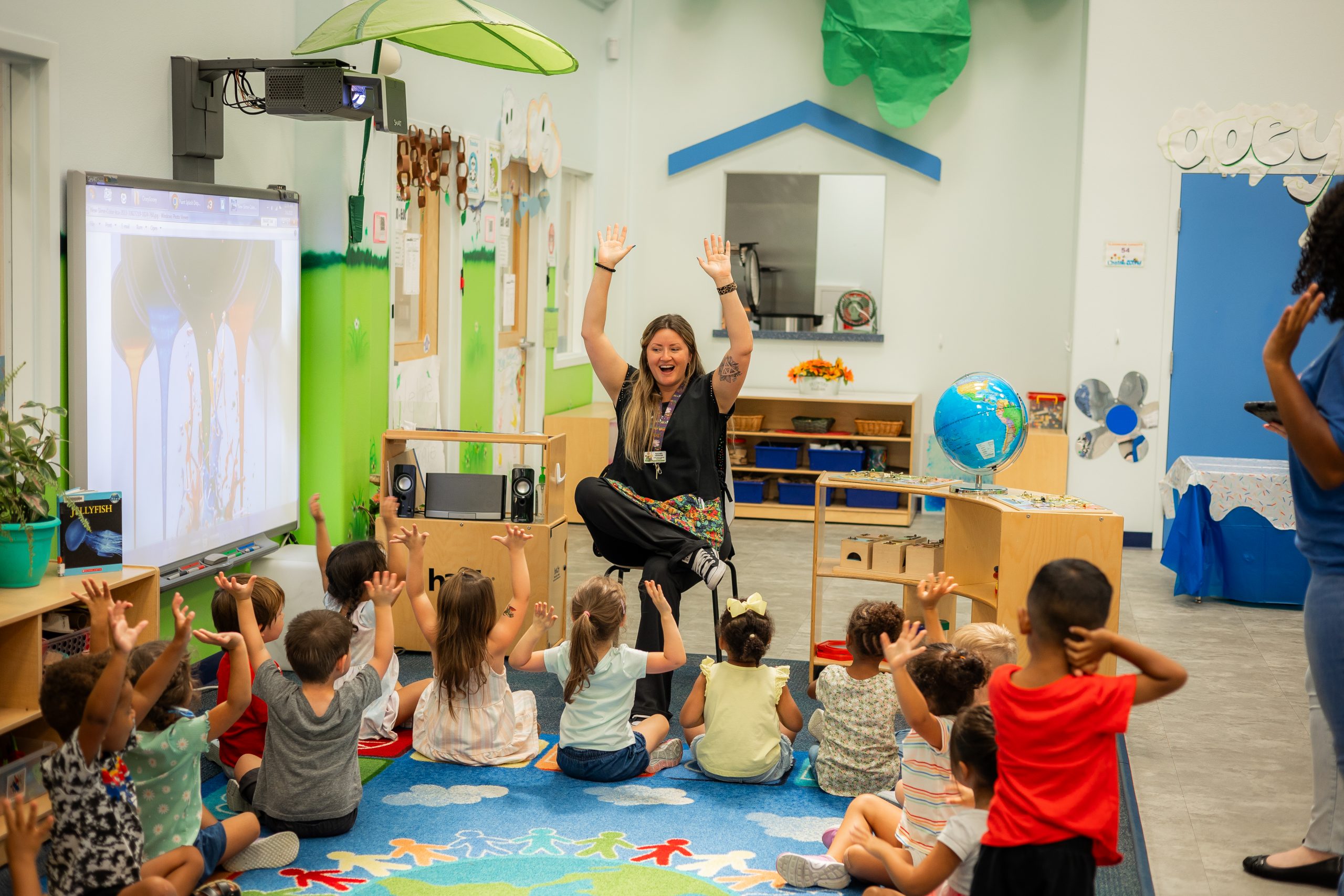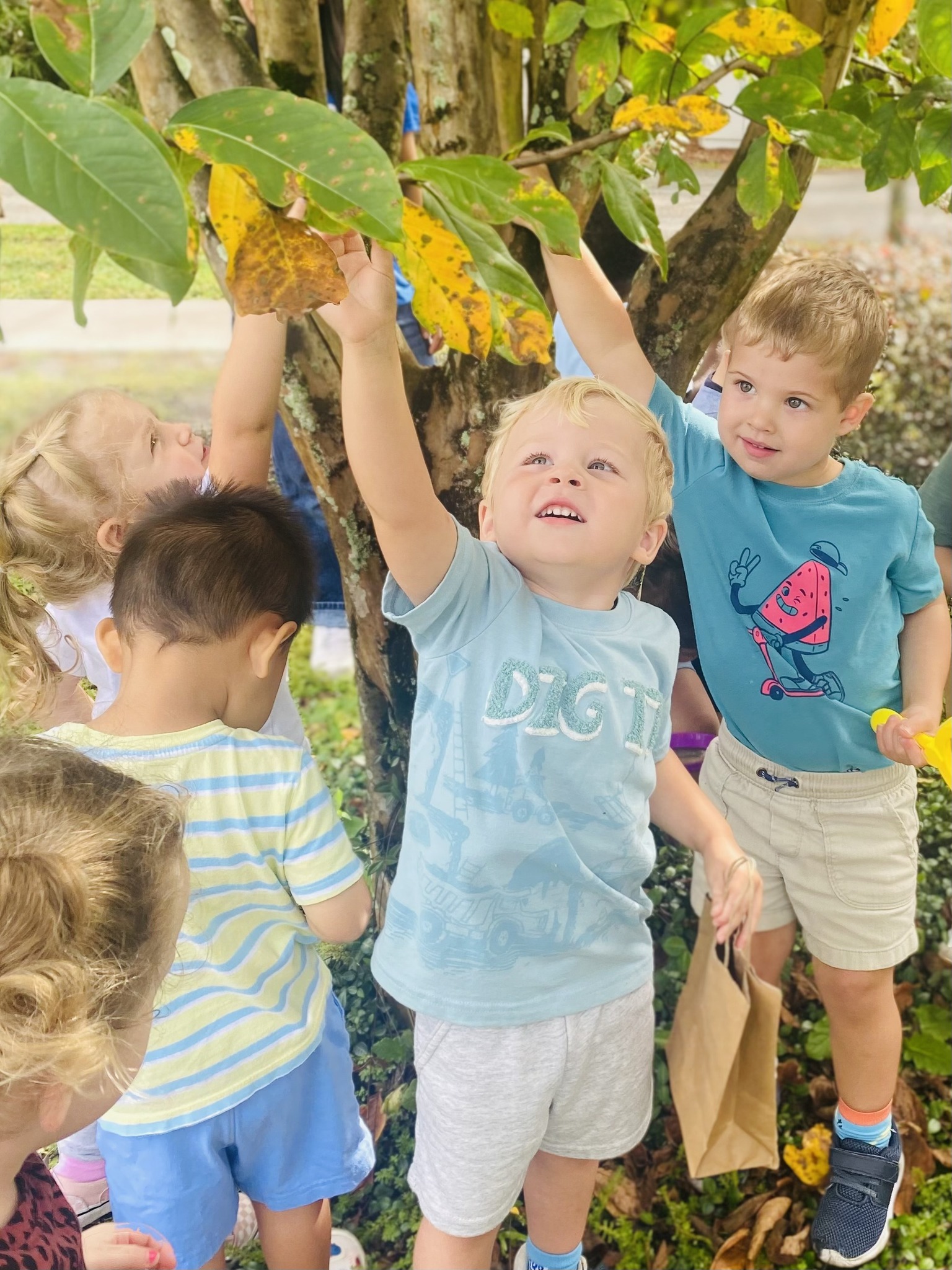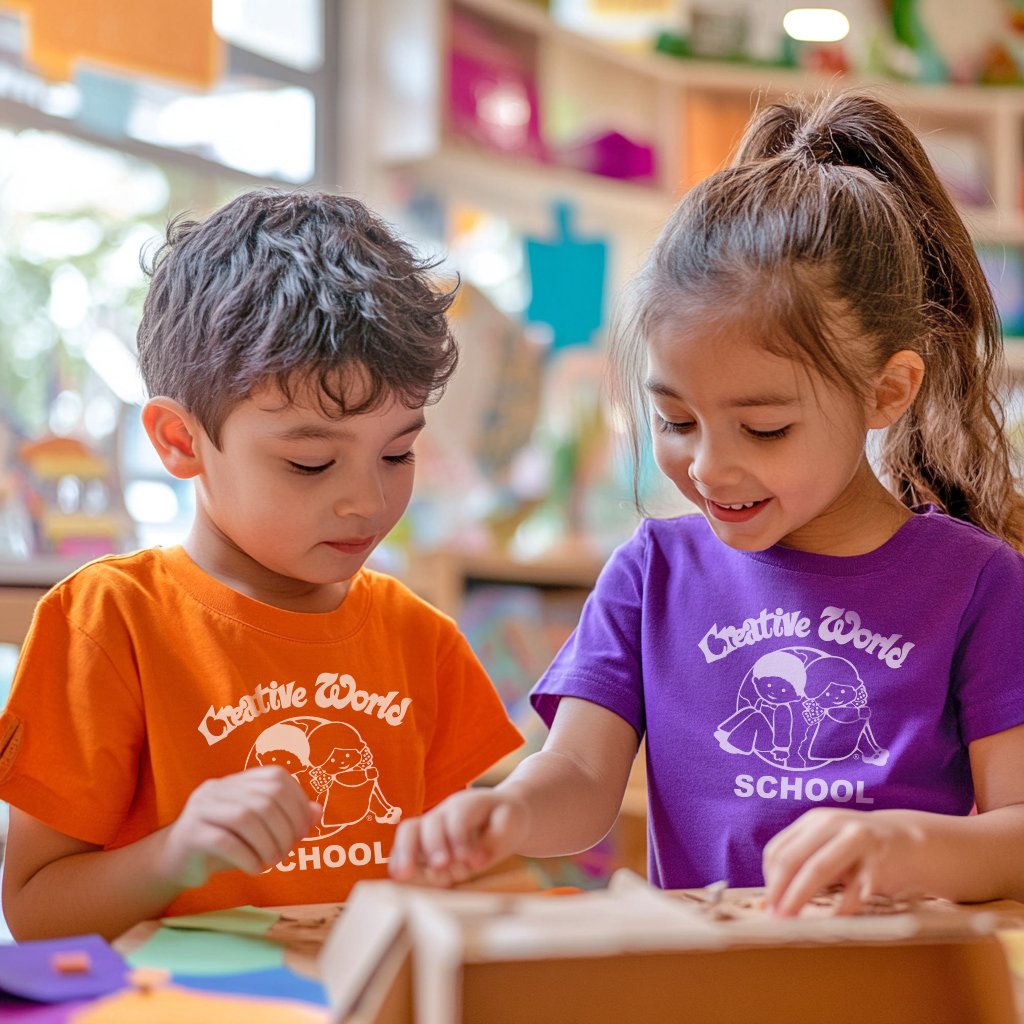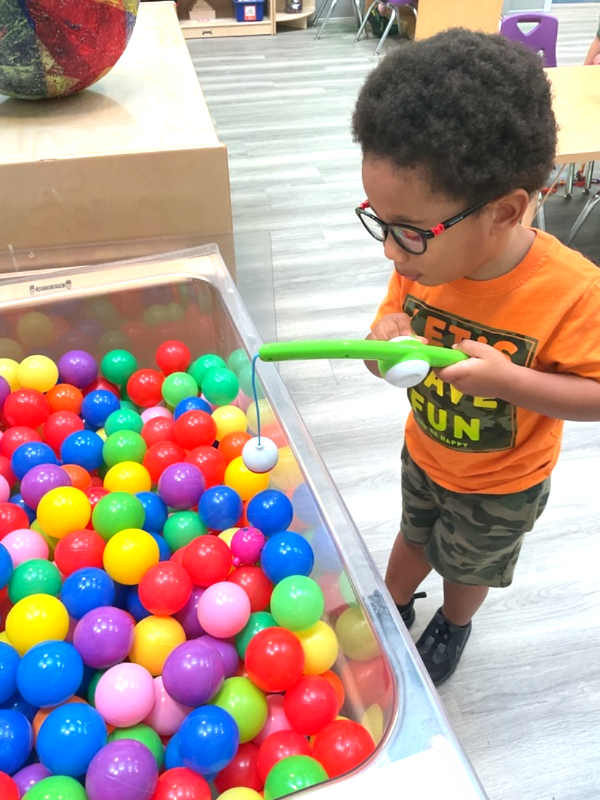
Discover the Power of Fostering Empathy Through Play
Creative world school Nov 19, 2025If your little one has ever stopped to help a friend, offered a hug, or said “Are you OK?”, then you’ve already seen empathy in action. Those tiny moments are actually a big deal. They’re signs your child is learning how to care about other people’s feelings. And one of the best ways to help empathy grow is through play.
Fostering empathy through play gives kids space to explore emotions, practice kindness, and learn how to be a good friend. It’s all built into the things kids already love to do. No lessons or lectures, just stories, dress-up games, and lots of imagination.
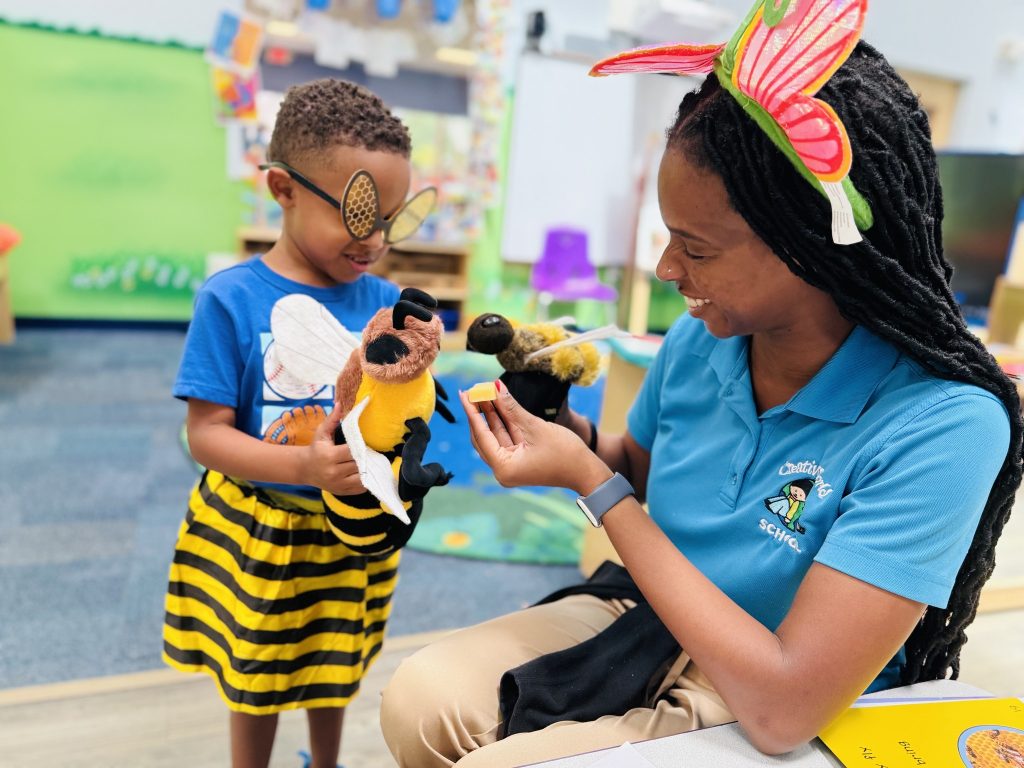
Why Empathy Matters So Much in Early Childhood
Empathy is one of those skills that helps kids in every part of life. When kids can see how someone else is feeling and care enough to respond, they build stronger friendships and more confidence in social situations. Preschoolers are still figuring out how to use their words and manage big feelings, so it’s the perfect time to practice caring about others too.
That preschool window is lightning fast. Research shows cognitive empathy really starts to take shape between ages 3 and 5, making these years ideal for fun, empathy-building play. When children feel understood, they’re more likely to be understanding in return. That’s where the magic happens. A child who knows how to say “I see you’re sad” or “Let me help” is already building the foundation for emotional intelligence, and that’s something they’ll carry with them for life.
A beautiful book that helps young kids explore feelings is In My Heart: A Book of Feelings by Jo Witek. With colorful pages and clear language, it helps kids recognize what different emotions feel like inside their bodies.
Helping Preschoolers Learn Empathy in Simple Ways
You don’t need to sit your child down and explain empathy with a chart. It’s way more natural than that. Just start with what’s happening in their world. When your child is upset, help name that feeling. “Looks like you’re feeling frustrated. Want to talk about it?” This shows them that feelings are normal and it’s okay to talk about them.
Then take it a step further. When something happens to someone else, ask your child how they think that person felt. “How do you think your friend felt when they dropped their toy?” or “What could we do to help them feel better?” These simple questions help kids step into someone else’s shoes, even just a little.
A favorite story for this age is Have You Filled a Bucket Today? by Carol McCloud. It uses the idea of invisible buckets to show how kindness helps others feel good, and it really sticks with kids. They love becoming “bucket fillers” for their friends, teachers, and even grown-ups.
Feelings Games and Fun Activities That Teach Kindness
Play is how kids process everything, including emotions. Pretend play is especially great for learning empathy. You can set up a pretend animal rescue, a doll hospital, or even a superhero team that helps sad toys feel better. Give your child some space to act out helping someone and talk through what each character is feeling.
Board games can be helpful too. There are simple ones like Emotion‑OES, a domino‑style game where kids match faces and emotion words while sharing feelings, and My Feelings Game, which comes with 280 emotion scenarios and tools for talking through how someone might feel and coping ideas. Both are playful, easy to pick up, and invite gentle chats about recognizing feelings in ourselves and others. Even regular old Candy Land can turn into a chance to practice taking turns, cheering for friends, and handling disappointment with grace.
Learning Through Play: Social and Emotional Growth in Action
Empathy doesn’t happen in just one moment. It grows in all the little parts of the day—during playdates, at the dinner table, and even when your child is feeling left out or frustrated. These are all chances to talk about feelings, offer support, and show kindness.
Empathy isn’t just good for the heart. It’s good for the brain, too. Kids who learn empathy and other social-emotional skills in preschool score about 11 percentile points higher in academic performance.
Preschools like Creative World School that use play-filled inquiry-based learning are full of these natural moments. Teachers guide kids to work together, talk things through, and understand how their actions affect others. It’s all part of the day, baked into the play and routines.https://youtu.be/ws4j6TixjRo?si=atMuIDiqkQzA1z7L
Creative Ways to Build Emotional Intelligence Every Day
Kids don’t always have the words to explain how they feel, but give them a crayon or a paintbrush and suddenly those feelings have somewhere to go. You can ask your child to draw what “happy” looks like or paint a picture of a time they felt nervous, excited, or even frustrated. The goal isn’t to make fancy art. It’s to help your child understand what’s going on inside and feel safe expressing it.
You might be surprised what your child shares when they’re creating freely. Sometimes a color choice or a little scribbled face can lead to a whole conversation. You could say, “Tell me about this red part. Was something making you mad?” or “This blue looks peaceful. Were you feeling calm?” These chats help kids start connecting their feelings to words in a way that feels easy and natural.
Books are another gentle way to start these conversations. After a story, ask, “How do you think that character felt?” or “What would you have done?” One beautiful choice is The Rabbit Listened by Cori Doerrfeld. It’s a quiet story about how sometimes the best way to help is just to be there and listen.
And of course, let your child have plenty of open-ended play. Whether they’re building with blocks or pretending to be a firefighter, they’re learning how to lead, follow, comfort, and care. That’s empathy in action.
A Place Where Empathy Grows Every Day
At Creative World School, we believe in the power of play and the importance of nurturing empathy from the very start. Our classrooms are full of hands-on activities, friendship-building opportunities, and loving teachers who guide children in discovering what it means to care for others.
When children feel safe, supported, and seen, they grow into confident, compassionate learners. And that’s what we do best. See how empathy is nurtured in our classrooms. Schedule a visit today!


